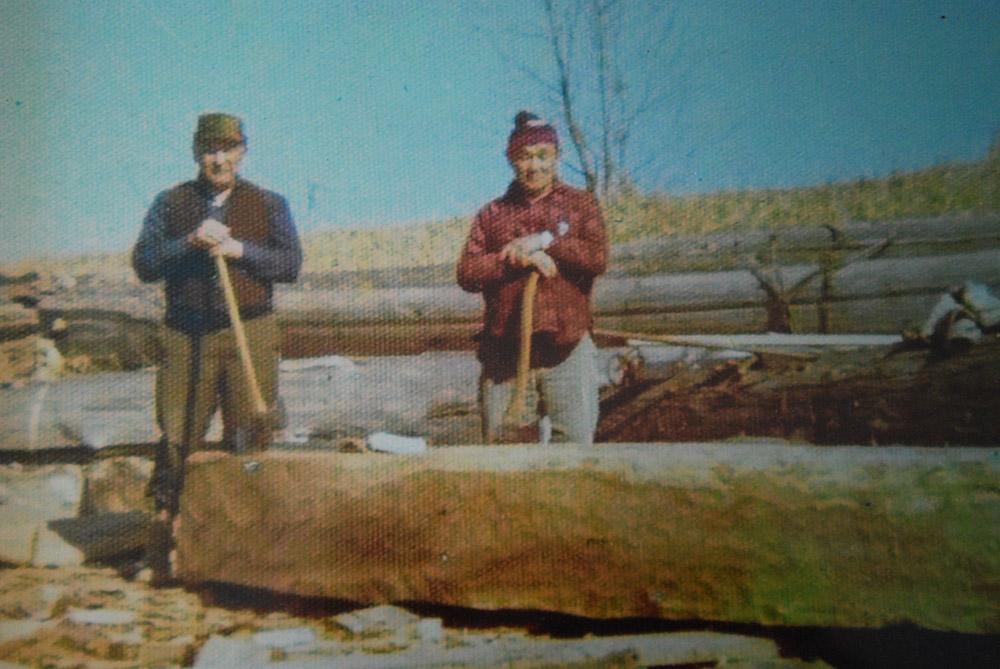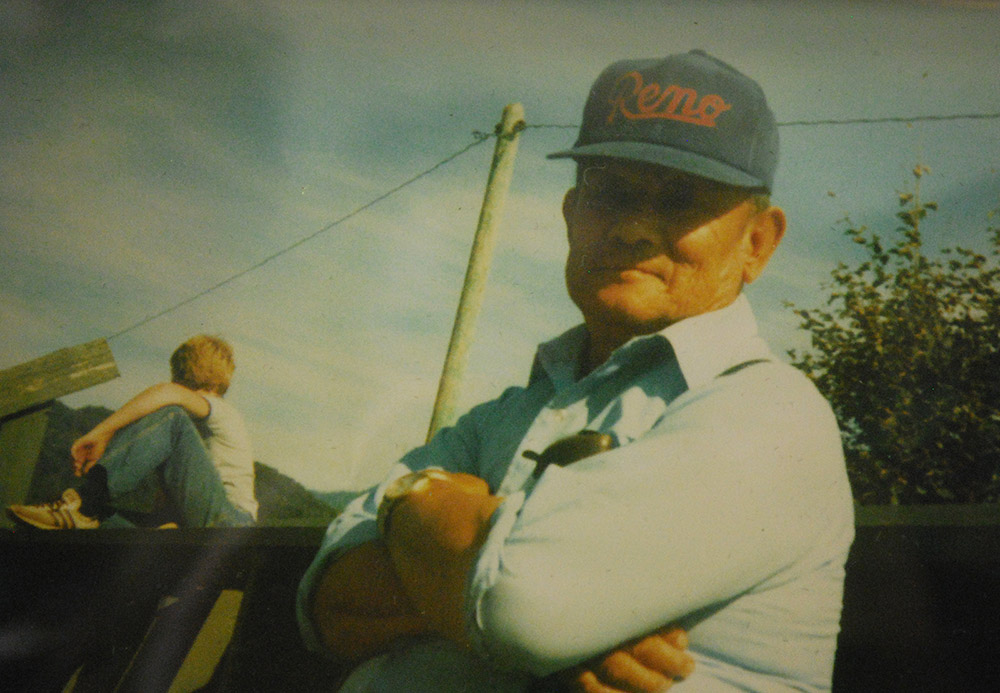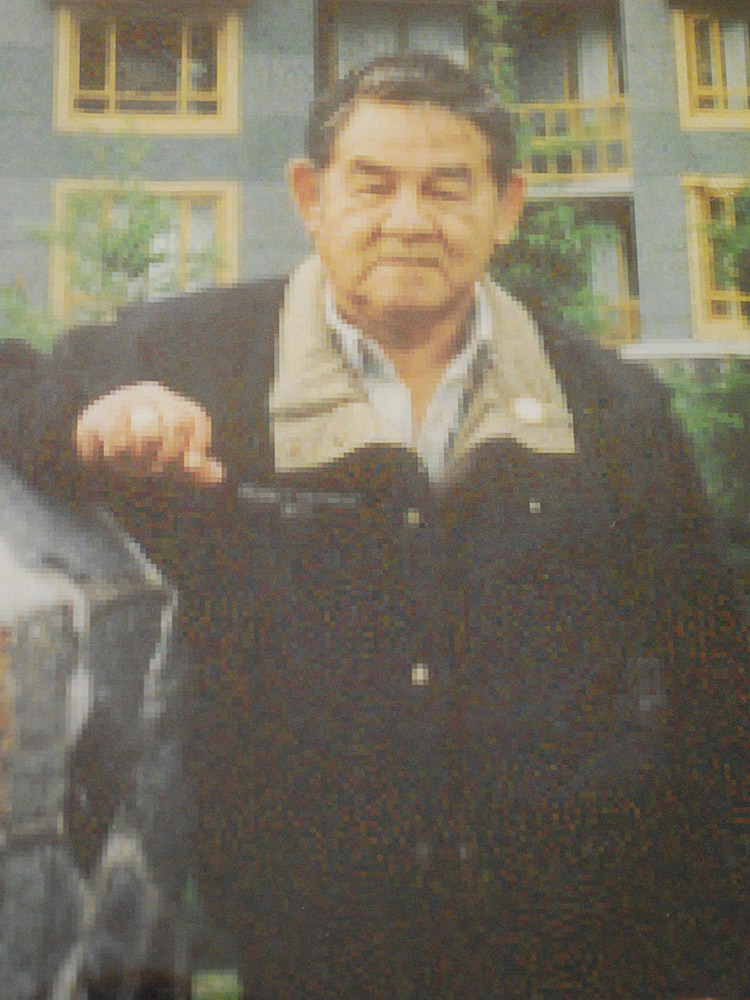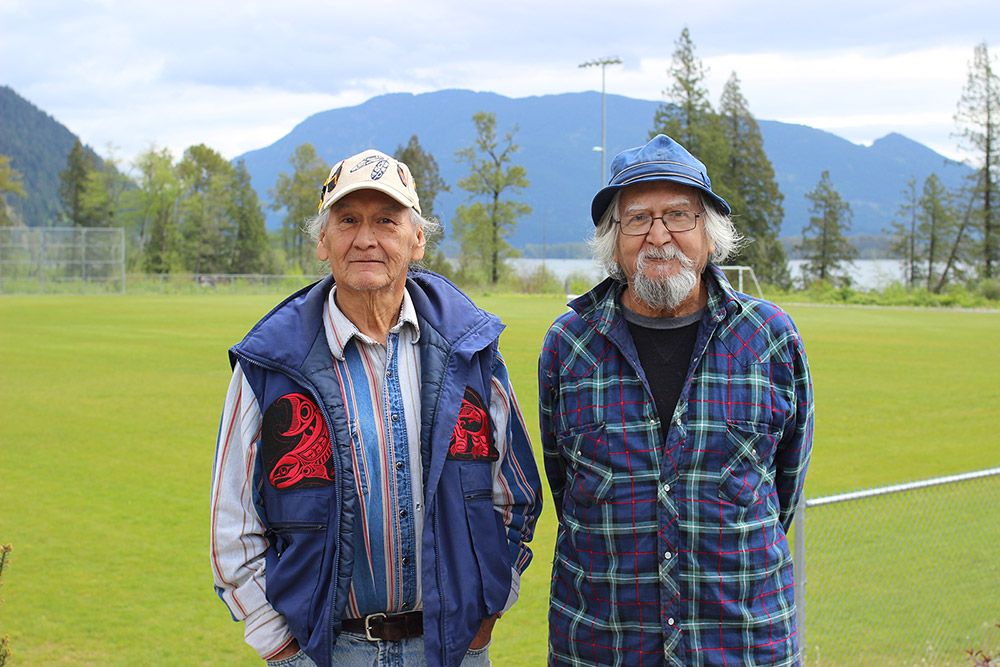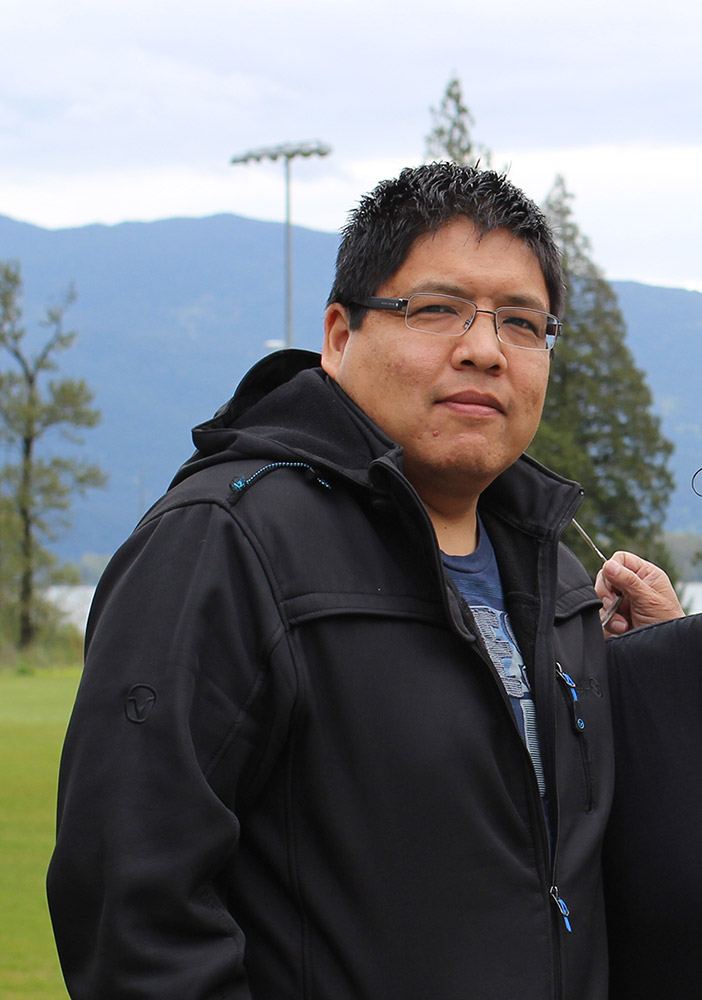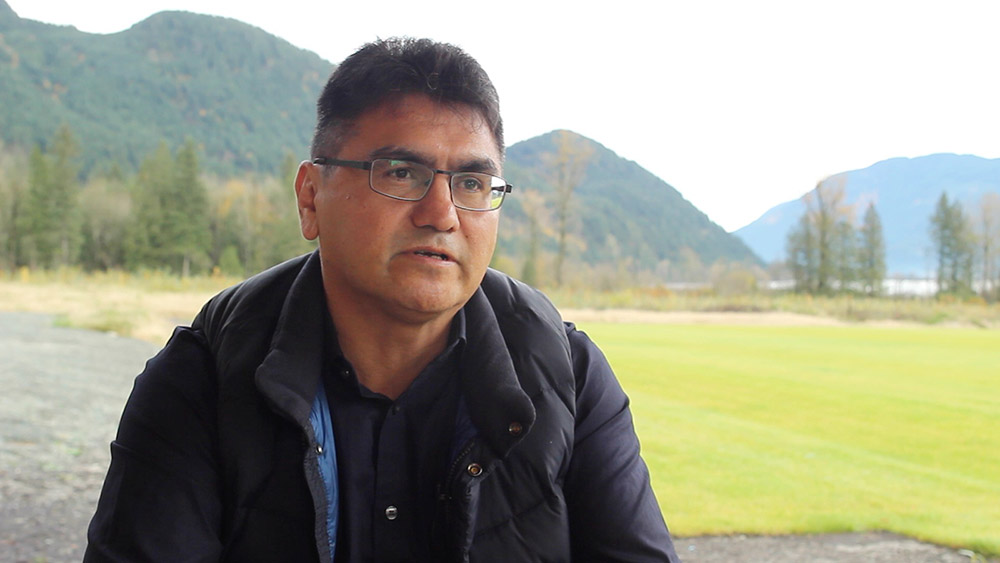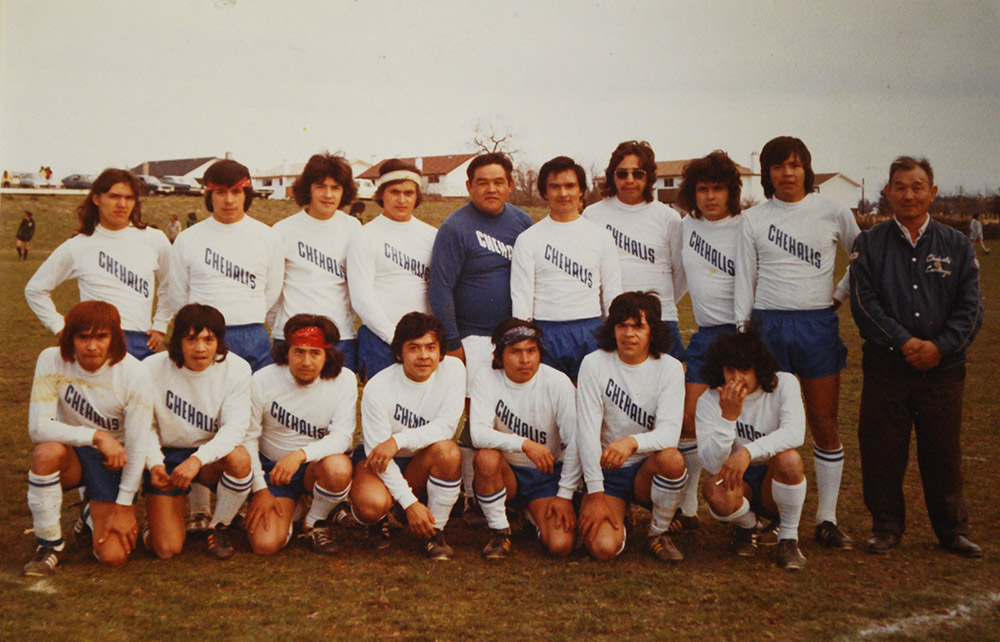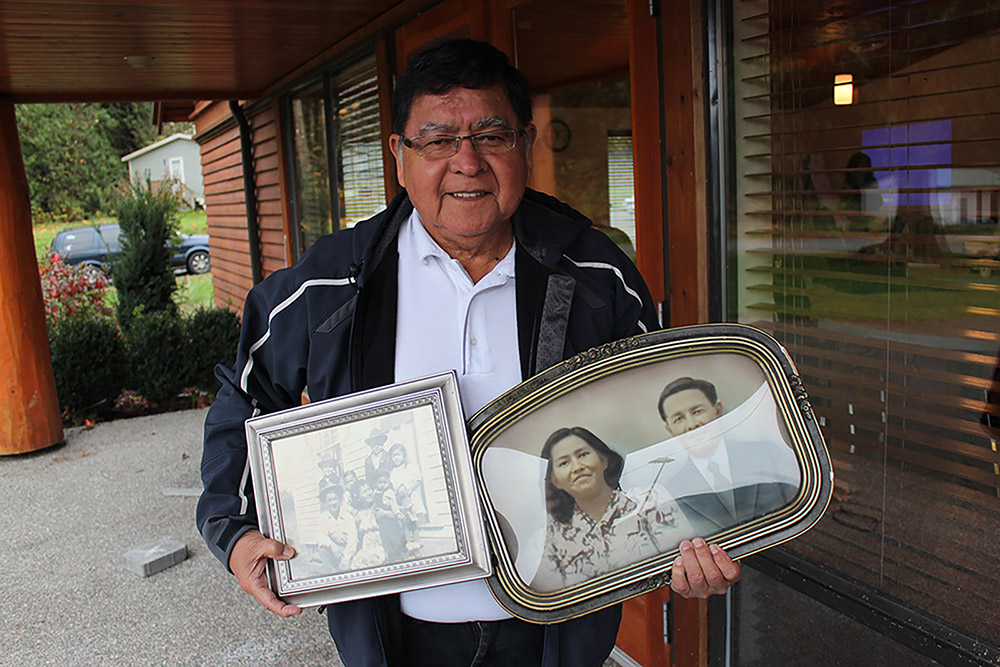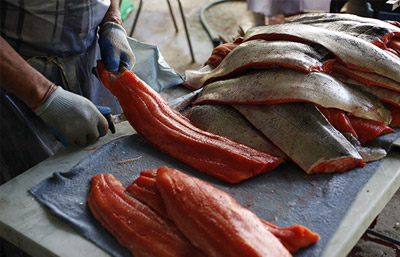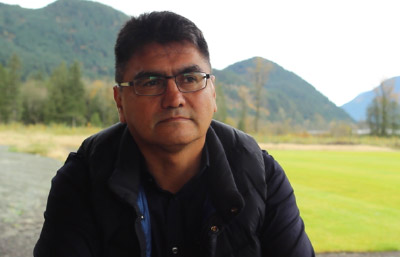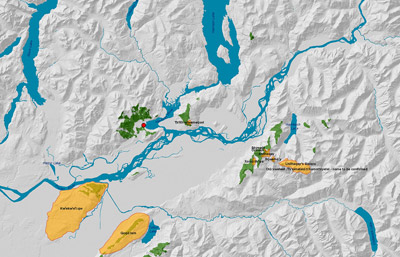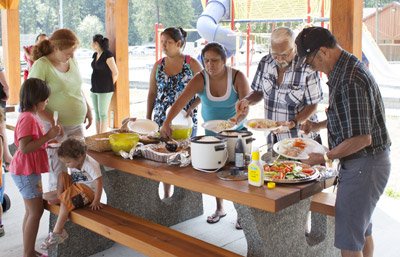Our Old-time Leaders
Chief Kelapelatelia
Chief Kelapelatelia of Sq’éwlets worked with a Catholic priest named Frère Leon Fouquet. In 1862, they tried to get the Chief Commissioner of Lands and Works, Colonel Moody, to live up to Xwelítem (European settler) promises. Governor Douglas had promised to let Stó:lõ leaders mark their reserves with stakes. The stakes would show the size of our original lands which would then become reserves. Colonel Moody refused, breaking the Governor’s promise and insulting Chief Kelapelatelia.
Chief Scult-la-ment
Chief Scult-la-ment was known to Xwelítem (European settlers) as Captain John of Sq’éwlets. He joined 109 other chiefs in 1874 to protest newcomers taking their lands. Joseph Trutch had cut down Stó:lõ reserve size in the Fraser Valley. They wrote: “We consider that 80 acres per [Stó:lõ] family is absolutely necessary for our support, and for the future welfare of our children. We declare that [the allotted] 20 or 30 acres of land per family will not give satisfaction, but will create ill feelings, irritation amongst our people, and we cannot say what will be the consequence.” They also complained that Trutch made them pay to cross over or pass under the Alexandria Bridge, which he owned.
Chief Joe Hall
Chief Joe Hall was chief of Sq’éwlets in the early 1900s. He spoke to the Indian Reserve Commission in 1913. He told them Sq’éwlets history and demanded that our people be treated more fairly and respectfully. This is Chief Hall’s speech:
First of all God created us Indians in this country in good many different tribes, and so are the white people created in their own country and other places. And when they came along here we treated them like brothers and this is where we show that we are the original owners of this country, which is now called the Province of British Columbia and therefore we claim our aboriginal title.
2nd Sir James Douglas, the first governor, made a verbal promise to us Indians in his first surveying the land. He said for which land I have surveyed it belongs to the Indian only. That no white men shall intrude your land. And for all the out side lands Her Majesty Queen Victoria will take and sell to the white people and which is taken away from the Indians will be like a fruit tree and from this said fruit Her Majesty Queen Victoria will give it to the Indians for their lasting support.
3rd The second governor Seymour also made a verbal promise in his speech that Her Majesty Queen Victoria will divide the revenue in three parts: One third to the Indians for their benefit; One third to the Crown; One third to the public for road works etc. Now for these last good many years standing we are expecting to receive those good promises by Her Majesty Queen Victoria. But we have not heard anything of it yet. For the latest governments of the Province has concealed and buried it and worked all kinds of skeems [sic] to keep it hidden.
4th We claim that the Provincial Government has no right to claim a reversionary interest in our present reserves. That no others but the Indians has a clear claim to the Indian Reserves.
5th We ask for a permanent and secure title for our present reserves.
6th And for which lands have already been taken away and occupied by the white people we ask the Dominion Government to return this said land to us Indians.
Tradition and Identity (Andy Phillips)
View Transcript[Andy Phillips]: I’m a very strong advocate for traditional ways of fishing, our traditional ways of hunting, the traditional ways of sport - how we’ve incorporated sport. Like so for example, every year the community holds an annual canoe race, and we’re very proud of that. This year we’ve added a little youth soccer tournament, so we hope to expand on that. And then having the kids understand what it means to be Xwelmexw and having having identity. And not being labeled as a member of an Indian band. And I think that’s the challenge in today, as a lot of our people think they’re members of Indian bands. And I want them to know their true identity, and their lineage - how it goes back to the identity of our ancestors and our tribes and how our tribes became a nation. Today everybody classifies themselves as a Indian band, which is a federal terminology, where they give us a number, they label us. And uh, if you go back to the definition of a tribe, what is the definition of a tribe, what is the definition of a nation, right? And if you have the treaty process, the B.C. treaty process complicates things. Um, you have non-treaty. And so you have this big diversity in B.C., and so how do we move forward today as a collective to ensure that our integral integrity, as Xwelmexw people, that we are classified as stewards of the land how do we make sure that those unwritten laws or those traditional laws are passed down from generation to generation? And what means of support and best practices are out there to ensure that our children are learning their heritage, their family lineage, the unwritten laws of how to fish, the unwritten laws of how to hunt, so that we’re not contradicting ourselves in terms of being stewards of the land.
Download:
SD (8.8 MB) | HD (29.6 MB)
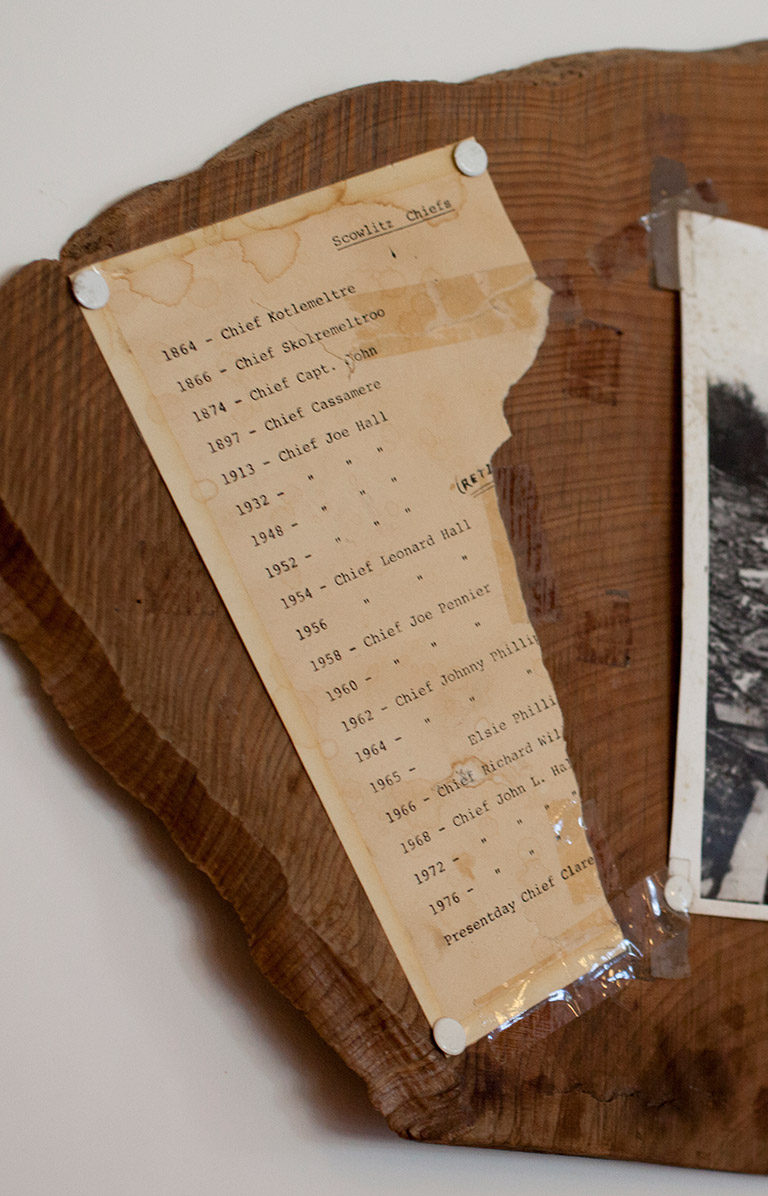
Hanging on the wall in our Band Office, we have a plaque with an old picture with a short list of our leaders going back to the mid-19th century. Next to it is an historical photo of Harrison Bay, where our modern community is located.
Xwelmexw (People/Places)



